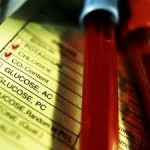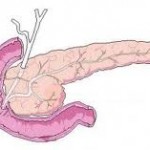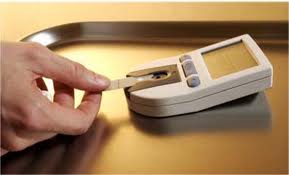Blood sugar or blood glucose level is defined as the level of sugar or glucose that is present in the blood. In humans, it is very important to maintain that normal blood glucose level to help maintain the homeostasis needed by the internal environment of the body. Glucose is the primary carbohydrate that is the main energy source for the cells. Through the help of the pancreas, insulin is used to release the energy from this glucose to be used for daily functions. Normally, the normal blood glucose level in humans is 72 milligrams per deciliter(mg/dL). If your blood sugar is out of normal range, then it is trying to tell you that something is wrong with your body. When it is very high, hyperglycemia occurs. If blood sugar is low, then you experience hypoglycemia. This may indicate the presence of diabetes especially if your blood sugar level is always high. This means that your insulin production is extremely low to breakdown all that glucose in your blood and change it into energy.
When your blood sugar drops very low (fatal), this is called hypohlycemia. This manifests as irritability, lethargy, impaired mental activity, twitching, shaking, weakness, sweating, loss of consciousness , paleness, possible damage to the brain, and aggressiveness. If you have a very high glucose level, then you are suffering from hyperglycemia. Here, your appetite is suppressed for a short period of time. If hyperglycemia persists, then you may be diagnosed with diabetes that will yield diseases of the eyes, kidneys, heart, and nerve.
One of the standard ways to measure your blood glucose levels is the fasting blood glucose test. Here are some of the facts that you need to know about this test if your doctor requires you to take it:
1. Preparation
 Before the fasting blood glucose test, you need to stop any intake of food or water, eight hours before. This part of the test makes the results more reliable, because there is no additional amount of sugar in your blood. If your blood test is scheduled in the morning, then you should avoid having a midnight snack before you sleep.
Before the fasting blood glucose test, you need to stop any intake of food or water, eight hours before. This part of the test makes the results more reliable, because there is no additional amount of sugar in your blood. If your blood test is scheduled in the morning, then you should avoid having a midnight snack before you sleep.
2. Procedure
 When you get to the diagnostic clinic or hospital laboratory, the healthcare practitioner will take a sample of your blood with a sterile container. That container will be labeled properly and then brought into the laboratory for the rest of the fasting blood glucose test. It is most preferable to do have your fasting blood glucose test early in the morning than in the afternoon. Blood sugar is lowest in the morning.
When you get to the diagnostic clinic or hospital laboratory, the healthcare practitioner will take a sample of your blood with a sterile container. That container will be labeled properly and then brought into the laboratory for the rest of the fasting blood glucose test. It is most preferable to do have your fasting blood glucose test early in the morning than in the afternoon. Blood sugar is lowest in the morning.
3. Results
 The results of your fasting blood glucose test will be compared and contrasted against the normal levels of blood glucose, which is lower than 100 milligrams per deciliter. For a blood glucose level above 126 milligrams per deciliter, a second trial will be ordered by the attending doctor. If the second test yields the same result, then you will be diagnosed as diabetic. For a blood glucose level between 100 and 125 milligrams per deciliter, a second fasting blood glucose test will be ordered again. You have an impaired fasting glucose f you have this value. If the result  of the second test is the same, your doctor will first rule out other abnormal tests first before diagnosing you as a diabetic.
The results of your fasting blood glucose test will be compared and contrasted against the normal levels of blood glucose, which is lower than 100 milligrams per deciliter. For a blood glucose level above 126 milligrams per deciliter, a second trial will be ordered by the attending doctor. If the second test yields the same result, then you will be diagnosed as diabetic. For a blood glucose level between 100 and 125 milligrams per deciliter, a second fasting blood glucose test will be ordered again. You have an impaired fasting glucose f you have this value. If the result  of the second test is the same, your doctor will first rule out other abnormal tests first before diagnosing you as a diabetic.
4. Rationale
 Maintenance of the blood sugar level occurs between 40 and 70 milligrams per deciliter. This happens in between meals and when you don’t eat overnight. The glycogen in your body is converted to glucose. When it is already needed, fats may also be converted to glucose as source of energy. When the blood sugar if high, glucose in then changed into glycogen. This is usually after you eat. When this happens, your pancreas secreted insulin to lower the glucose level back to normal. A diabetic still has a very high glucose level even if fasting is done. This is because of there is no insulin secreted.
Maintenance of the blood sugar level occurs between 40 and 70 milligrams per deciliter. This happens in between meals and when you don’t eat overnight. The glycogen in your body is converted to glucose. When it is already needed, fats may also be converted to glucose as source of energy. When the blood sugar if high, glucose in then changed into glycogen. This is usually after you eat. When this happens, your pancreas secreted insulin to lower the glucose level back to normal. A diabetic still has a very high glucose level even if fasting is done. This is because of there is no insulin secreted.
5. Events
 When you fast before your fasting blood glucose test, glucagon is secreted to raise the blood glucose in your body. In a non-diabetic, insulin will automatically be released to counter the increased glucose level. Diabetics either cannot utilize their insulin effectively enough (Type II) or do not have enough insulin secretions (Type I) to regulate their blood sugar.
When you fast before your fasting blood glucose test, glucagon is secreted to raise the blood glucose in your body. In a non-diabetic, insulin will automatically be released to counter the increased glucose level. Diabetics either cannot utilize their insulin effectively enough (Type II) or do not have enough insulin secretions (Type I) to regulate their blood sugar.
Make sure that you coordinate with your doctor very well before and after you have your fasting blood glucose test. This way, you will be able to know what to do just in case the fear of being diagnosed as a diabetic comes true.
